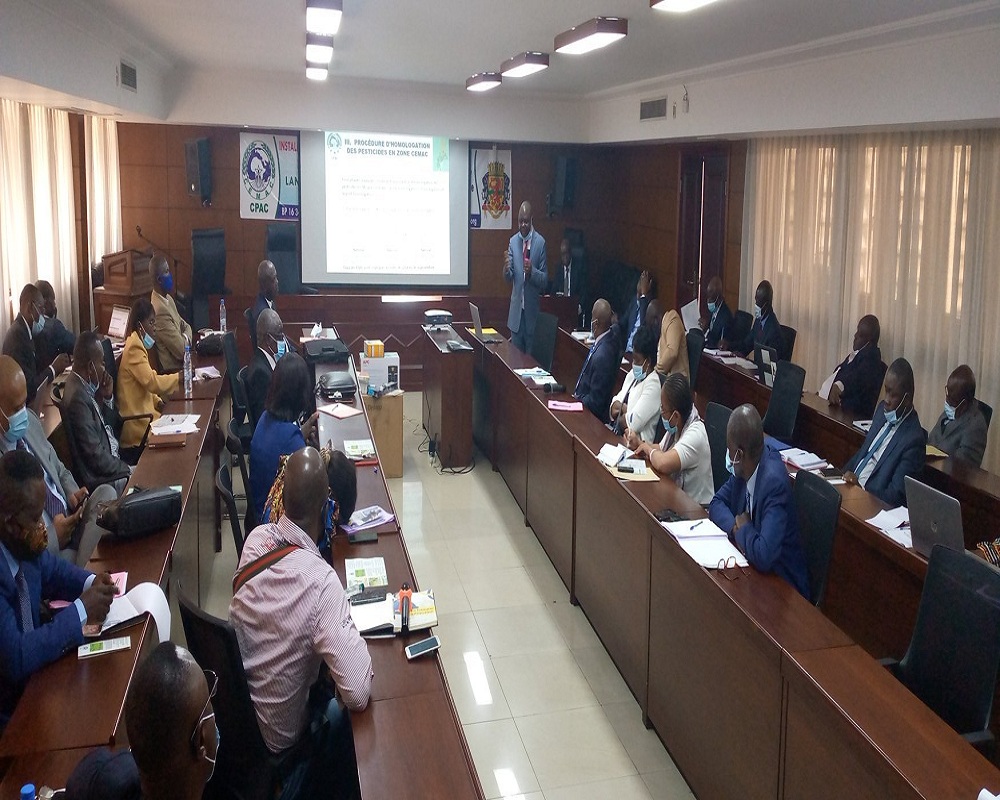The Inter-State Pesticides Committee of Central Africa (CPAC), a specialized institution of the Economic and Monetary Community of Central Africa (Cemac), has briefed representatives of public and private administrations on the regulation and the registration procedures for chemicals intended to repel pests including vectors of human and animal diseases in the subregion.
The objective is to encourage farmers, manufacturers and even households to use approved products that are authorized and meet CPAC standards circulating in the sub-region.
The use of pesticides such as herbicides, insecticides, fungicides approved by the committee will limit the danger to plants in the environment. Pesticides have a negative effect on human and animal health as well as on plants.

Indeed, the practice of agriculture in the Cemac zone is under strong pressure from pests and crop diseases, indicated the scientific director of CPAC, Jean Blaise Moudoudou, during the meeting held in Brazzaville.
The speaker recalled that CPAC’s mission is to approve products put into circulation in the field of agriculture in the Cemac zone. Registration is a process by which this institution approves the sale and use of a pesticide after reviewing scientific data. The full review shows that the product contributes effectively to the objectives set without presenting unacceptable risks to human, animal and environmental health.
The approval of these products, he continues, is governed by texts commonly regulated by the committee, additional acts of the specialized institutions and commissions of the sub-region.
Addressing the issue of pesticide approval procedures in the Cemac zone, Jean Blaise Moudoudou underlined three phases that come into play: pre-approval, approval and post-approval. These phases obey the experimentation, the evaluation of the authorization as well as the control, the popularization and the surveillance.
After these steps and several tests, adds the speaker, the approval will be granted by the States, through the Ministry of Agriculture, although the CPAC remains a facilitator in the preparation and examination of dossiers in order to give an opinion on these files.
Responding to questions regarding currently valid homologation products authorized by certain CEMAC countries, Jean Blaise Moudoudou indicated that the products must continue to circulate in the countries until the expiry date of their authorization. Other questions included the difference between a chemical pesticide and a biological pesticide as well as the waste disposal of obsolete pesticides.
In addition, the legal adviser of the Société Industrielle de Bois, Ghile Elenga, expressed the wish to standardize the procedures related to the import authorization of pesticides with the establishment of a one-stop shop to avoid the surcharge.
Let us recall that the CPAC was created in 2007, then set up as a specialized institution of the Cemac in 2012. Its headquarters are based in Yaoundé, Cameroon. It is directed by Auguste Itoua. The committee is responsible for coordinating the concerted management of pesticides in Central Africa in order to help States to establish phytosanitary measures compatible with international standards, to ensure the protection of these States against the risks arising from uncontrolled importation. agrochemicals from associated misuse.





